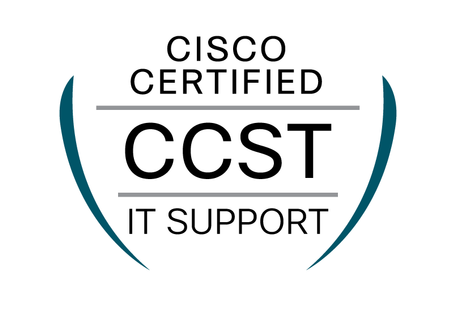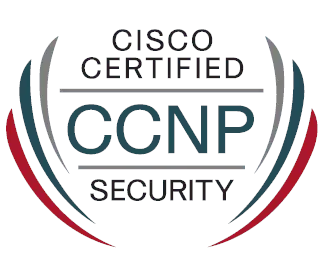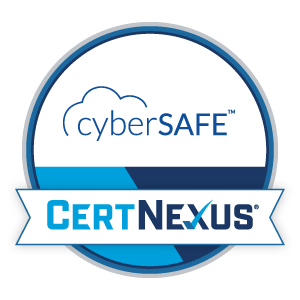Find Your Exam Voucher

CompTIA Network+
CompTIA Network+ certification (N+) validates essential networking skills in configuring, managing, and troubleshooting wired and wireless networks. Ideal for IT professionals, network technicians, and those preparing for the Network+ exam to advance their networking careers.

Cyber Secure Coder
ecure your CertNexus CSC exam voucher. Prove your mastery of secure coding, vulnerability mitigation, and secure SDLC. DoD 8140/8570 approved.

CyberSec First Responder
Get certified as a CyberSec First Responder! Purchase your official CertNexus CFR-410 exam voucher now to validate your core incident response and forensics skills.

Certified Ethical Hacker
Official EC-Council CEH exam voucher available. Validate your skills in ethical hacking techniques, malware analysis, and security assessment.

ITIL 4 Foundation
Purchase your ITIL 4 Foundation (ITIL4-F) exam voucher. Start your IT service management journey with this essential certification. Valid with PeopleCert and accredited providers.

Microsoft Azure AI Fundamentals
Start your journey into Artificial Intelligence. The AI-900 certification validates your foundational understanding of AI/ML concepts and how they are implemented using Microsoft Azure services.

Cisco Certified Support Technician IT Support
Cisco CCST IT Support (100-140): Entry-level IT credential. Master fundamentals, OS, security, and troubleshooting for effective help desk roles.

Cisco Certified Support Technician Cybersecurity
Cisco CCST Cybersecurity (100-160): Entry-level certification. Master security principles, threats, vulnerabilities, and defensive controls. Get your voucher here!

Cisco Certified Support Technician Networking
Cisco CCST Networking (100-150): Entry-level certification. Master network standards, IP addressing, basic infrastructure, and troubleshooting skills. Get your voucher here!

Supporting Cisco Devices for Field Technicians (FLDTEC)
Buy your official Cisco 500-150 FLDTEC exam voucher to earn the CCT certification. Master field support for Cisco Routing, Switching, and Data Center hardware.

CISCO CCNP SCOR
Prepare for the Cisco CCNP SCOR (350-701) exam. Our site offers exam vouchers to help you achieve your CCNP Security or CCIE Security certification. Master enterprise-level security concepts, network security, cloud security, endpoint protection, and more.

ITIL 4 Strategist: Direct, Plan and Improve
Lead strategic change and drive continual improvement with the ITIL 4 Specialist: Direct, Plan and Improve (ITIL4-DPI) certification. Advance your career in IT leadership, master governance and planning, and achieve the ITIL 4 Managing Professional/Strategic Leader designations. Buy your official ITIL4-DPI exam voucher now.

ITIL 4 Specialist: Drive Stakeholder Value
Master customer journeys, relationships, and value co-creation with the ITIL 4 Specialist: Drive Stakeholder Value (ITIL4-DSV) certification. Boost your career, optimize CX/UX, and earn the ITIL 4 Managing Professional designation. Buy your official ITIL4-DSV exam voucher now.

ITIL 4 Specialist: Create, Deliver and Support
Master IT service creation, delivery, and support with the ITIL 4 Specialist: Create, Deliver and Support (ITIL4-CDS) certification. Advance your career in IT Service Management, align services with business goals, and achieve the ITIL 4 Managing Professional designation. Buy your official ITIL4-CDS exam voucher today.

ITIL Leader: Digital and IT Strategy
The ITIL 4 Leader: Digital and IT Strategy (DITS) exam is a key component of the ITIL 4 certification scheme, specifically targeting professionals involved in formulating digital and IT strategies within their organizations. This advanced certification is part of the ITIL 4 Strategic Leader (SL) stream, which emphasizes the alignment of digital business strategy with IT strategy.

PMI Project Management Ready
Ready to become PMI Project Management certified? Purchase the PMI Project Management Ready Exam Voucher today to access the certification exam. Validate your project management skills and open doors to new career opportunities in the project management field. Start your journey today!

Microsoft Office Specialist
Ready to launch your career with Microsoft Office Specialist certification? Purchase your MOS Exam voucher online today and take the first step toward becoming a certified Microsoft Office professional. Invest in your future and unlock endless opportunities with MOS certification!

CompTIA SecAI+
Master CompTIA SecAI+: Secure AI systems, automate threat detection, and manage AI governance (GRC) for advanced cybersecurity careers.
Please contact us for any queries via phone or our contact form. We will be happy to answer your questions.
Ferndale,
2194 South Africa
Tel: +2711-781 8014 (Johannesburg)
+2721-020-0111 (Cape Town)
ZA
Jumping Bean Contact Form!

